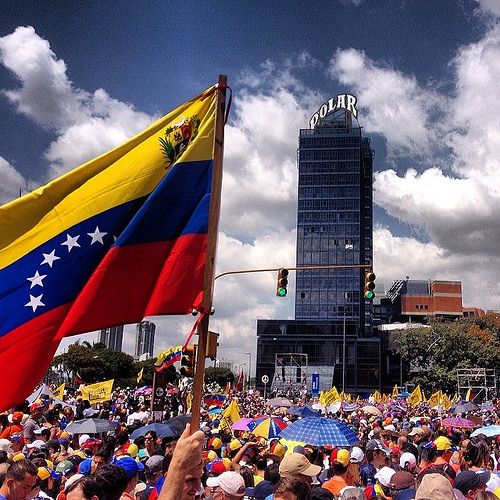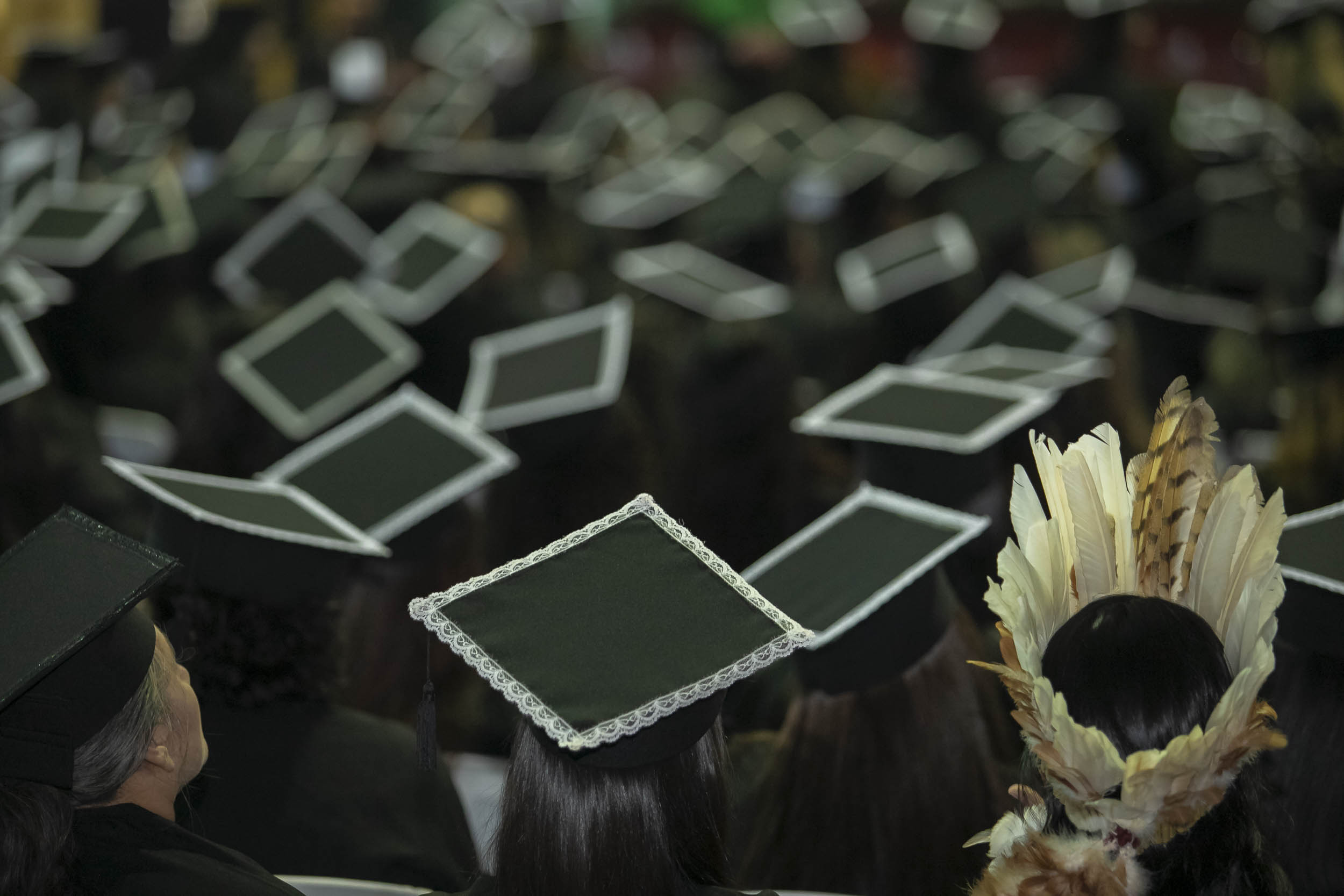Anti-government clashes in the Venezuelan capital have left five dead and countless injured. Journalist Ewan Robertson spoke to the Breaker from Caracus, Venezuela, about his experiences of covering the protests:
At the time of writing, there have been up to five deaths in relation to the protests. These include a 17-year-old who was run over by a car while trying to block a road, and three killed in clashes last Wednesday in central Caracas, one of whom was a government supporter.
An investigation is underway into who is responsible for the deaths. There is footage showing a group of civilians and SEBIN (intelligence service) officers firing at a group of protesters that day, which is when one of those who died, a carpenter called Bassil Da Costa, was shot.
“I think British anti-riot police would act in a far more forceful manner.”
However it is very unclear whether a member of this group of civilians and officers were the ones that killed Da Costa and who these civilians and SEBIN officers were.
The SEBIN service was under presidential order that day to stay in quarters and not be on the street, so it’s not clear who these men were or what they were doing there during the clashes.
However an inside source has informed Venezuelan media that one of these men is already under arrest. Investigations into the other deaths are underway.
These three deaths occurred in one day of very violent clashes in central Caracas, while no others have occurred in what by now must be hundreds of protests over the last few weeks.
Questionable
In the protests I have seen, police have either had a light presence or not been present at all, and I think British anti-riot police would act in a far more forceful manner. Overall, from what I’ve observed, I find the “repression” characterisation of the student protests questionable.
There is a radical sector within the opposition that has been involved in all manner of violent acts. They have used burning barricades, and thrown stones and Molotov cocktails at civilians, police and private property. They have generally tried to cause as much social chaos as possible.
One journalist, Tamara Pearson, was taking photos of such activities when a group of “protesters” threatened her at gunpoint and told her they would kill her if she didn’t hand over her camera. When I tried to approach another such a group they threw stones at me until I retreated.
“There is a lot of censorship in Venezuela, and this has led to students and the opposition protesting,” – Tomás De La Rosa Silva speaks to the Breaker
So it’s very important to understand that while the majority of opposition protesters are peaceful, there is a violent group that is intent on creating as much chaos and unrest as possible. In my opinion, they would like to provoke serious civil strife in Venezuela to create the conditions for a coup.
There are allegations that the government blocked users seeing online images on Twitter last Wednesday. The government denies this, saying Twitter servers are outside Venezuela and beyond their jurisdiction.
I found problems viewing Twitter on Thursday, but from Friday onward it has been working fine. Government supporters and authorities use Twitter just a much as the opposition to communicate, so blocking it would be counterproductive for them.
Censorship
The other censorship accusation is the removal of Colombian channel NTN24 from cable services. The government says it was transmitting in a way that was promoting a coup, but the opposition say the government just wanted to block coverage of opposition activities.
The channel is still viewable online and many in the opposition follow it. Venezuela itself as a pluralistic private, public (pro-government) and community media landscape. Many private newspapers, websites and radio are openly (sometimes radically) pro-opposition and freely report on their activities.
Nevertheless Venezuelans can and do use all this media to fully inform themselves of what is happening, and in general the population are internet and social media savvy. They have an interest and knowledge in politics far higher than most Western democracies. Turnout at the last two presidential elections has been 80 per cent, just to give you an idea of what I mean.







